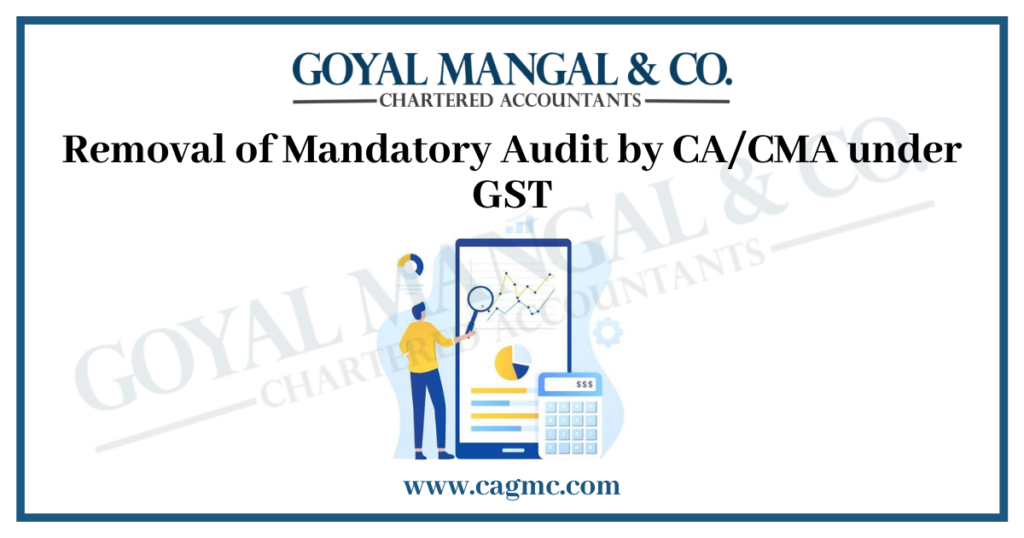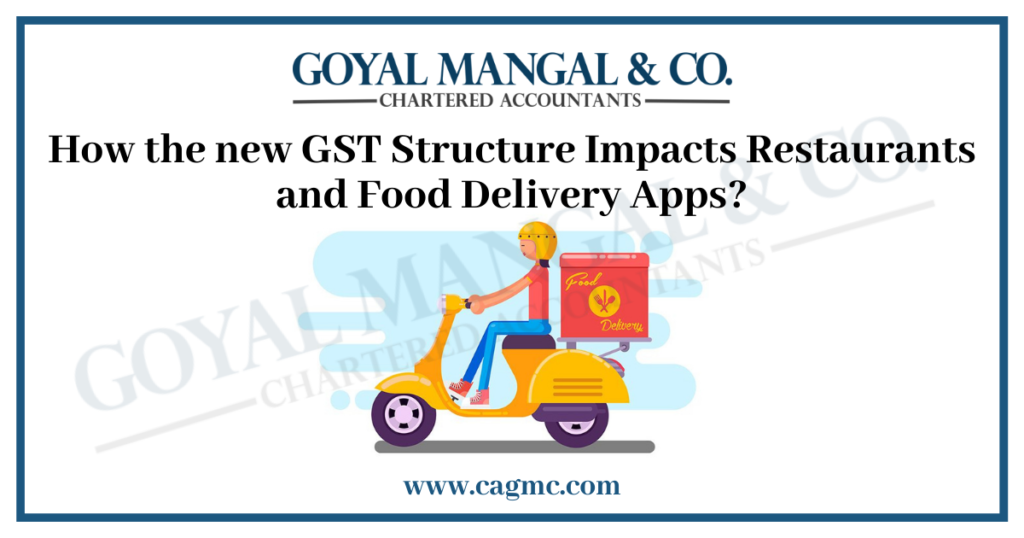
The Union Budget also known as Annual Financial Statements, is presented to parliament each year by the finance minister in the month of February. The Union Budget plays a crucial role in shaping the economic policies of the government and is eagerly awaited by Economists, business leaders, and ordinary citizens alike. It provides insight into the government’s economic priorities, plans, and strategies, for the future. In this article we will discuss about “Changes in GST in Union Budget 2023”.
|
Table of Contents |
Quick Look
The Union Budget contains several policy announcements/ statements refer to various policy decisions that government intent to implement during the fiscal year pertaining to taxation, fiscal measures, infrastructure development, social welfare, agriculture, education, healthcare, and more.
These announcements of policy may have a significant effect on the country’s overall economic growth and development. Amendments carried out in the Union Budget, 2023 related to GST except those in clause 142 (Schedule III of the CGST Act, 2017) will come into effect from the date when the same will be notified.
As Union Budget contains a policy announcement related to taxation to so, in this article, we will discuss about changes in GST in Union Budget 2023 in a simplified manner. Before we have a look on the changes in GST in Union Budget let us first try to understand the meaning of GST.
What is GST?
Goods and service Tax (GST) was introduced in July 2017. GST is a tax on supply of goods and services or supply of both except tax on supply of alcoholic liquor for human consumption The GST framework works on the standard of “One Country, One Duty, One Market,” and that infers that a similar expense rate applies to products and labour the nationwide.
There are mainly four tax rates in the GST system: 5%, 12%, 18%, and 28%. The aim of introducing GST was to simplify the tax structure, reduce the tax burden on business and ensure transparency in tax collection. Under GST taxpayer need to get registered and file periodic return based on its turnover.
Changes in GST as per Union Budget 2023
Following are the changes proposed by government to the GST System in the Union Budget for 2023:
- Changes in GST Rates: Many GST rates have been proposed for change in Union Budget 2023.The GST rate on tobacco product has been proposed to be increased from 25% to 35%.
The main reason behind the increase in rates on tobacco product including cigarettes is to reduce the consumption of tobacco product. GST Rate for Electric vehicle has been proposed to be reduced from 5% to 3%, the reduction of rates is to reduce the reliance of country members on fossil fuels.
- GST Compliance Simplification: The current system of multiple return submissions has been replaced with a single GST Return in the proposal of Union Budget.
Government has also proposed establishment of appeals system and faceless assessment for GST. - Amendment in Section 10 – Composition Levy: The composition taxpayers and registered supplier will as per the proposed budget will be able to opt for composition scheme to make intra -state supply of goods through e-commerce operators, subject to some conditions. However, the e – commerce operator needs to keep in mind that composition taxpayer need not make inter-state supply. However presently the person engaged in supply of goods or services through e-commerce operator is not eligible for composition scheme.
- Section 17 – Apportionment of credit and blocked credit: As per the proposed amendment the availment of Input Tax Credit has been restricted in respect of supply of custom bonded warehoused good before clearance for home consumption by including the value of such transaction in the value of exempt supply.
- Amendments in Section 16 – Eligibility and condition for taking Input Tax Credit (ITC): As per proposed amendment In case recipient fails to pay to the supplier of goods or services or both, other than the supplies on which tax is payable on reverse charge basis, the amount towards the value of supply along with tax payable thereon within a specified period of one hundred and eighty days from the date of issue of invoice by the supplier, an amount equal to the input tax credit availed by the recipient shall be paid by him along with interest payable under section 50 ( the interest rate is 18%/24%), in the prescribed manner. Also recipient would be entitled to re-avail the ITC on payment made by him to supplier towards value of supply along with tax.
Presently where the recipient of goods or services fails to pay to the supplier of goods or services or both within 180 days from the date of issue of invoice, the recipient shall be liable to add the said GST credit amount in the output tax liability along with the interest (18%).
- Section 54 – Refund of Tax: Presently, in case of refund of zero-rated supply of goods or services or both, the proper officer allows only the 90 % of the Input tax credit claimed excluding the ITC which was provisionally accepted (i.e., 5%/10% of GSTR 2A ITC claimed in GSTR 3B). As per proposed Budget, the above said exclusion is removed. As the taxpayer cannot avail ITC on provisional basis as per section 41, there is no question of provisional ITC to be excluded from the refund amount to be paid on provisional basis by the Proper Officer.
- Section 56 – Interest on Delayed Refund: As per proposed Union Budget if refund is delayed beyond the period of 60 days, then Interest will be calculated from the date of receipt of application till the date of refund.
- Amendment in Sec 12(8) of IGST Act: As per proposed budget Proviso to sub-section (8) of section 12 of the IGST Act is being omitted that is to specify the place of supply, irrespective of destination of the goods, in cases where the supplier of services and recipient of services are in India.
- Retrospective Amendment in Schedule III transactions: As per proposed budget the below activities will be treated neither as supply of good nor as supply of services w.e.f.01/07/2017 and if tax has already been paid in respect of such supplier than no refund will be available.
Certain Activities are:
- Supply of goods from place outside the taxable territory to another place outside taxable territory.
- Supply of warehouse goods before their home consumption.
- High Sea Sales.
- GST Registration Simplification: The Union Budget 2023 proposes simplification in GST Registration as compared to earlier cumbersome registration process. Government proposed a system of Aadhar based authentication for GST Registration.
This will help in growing the authenticity of GST Registration. Another system of instant GST Registration for new business has been proposed by the Government i.e., a self – declaration – based system. This will lessen the burden on the new businessman of GST Registration Compliance.
- Section 23: Person not Liable for Registration: As per Section 23 of CGST ACT 2017, entities that are exclusively engaged in supply of exempted goods or services and an agriculturist to the extent of supply of produce out of cultivation of land is not liable for registration. But there are controversial views on the same that if the above-mentioned entities fall under criteria of Section 24 that is compulsory registration, and then will Section 23 override section 24. As per proposed amendment Section 23 is now proposed to be retrospectively amended w.e.f. 2017.and will override Section 24(compulsory registration). So now such entities will not be liable to registration even if they are governed by the provision of Section 24.
- Applicability of Input Tax Credit on Corporate Social Responsibility (CSR): The Union Budget proposes the claim of ITC for CSR expenses, that means the businesses can claim ITC for the GST they pay on Goods and Services they use for CSR.
The goal of CSR is to ensure that the businesses are held accountable for the effects they have on their surroundings, economy, and society. This move of government will encourage businessman to invest more in CSR activities but one thing to keep in mind is that the CSR activity must be in alignment with the primary business activity of the company.
- Amendment in Section 12: Section 12 – Place of supply of service where location of supplier and recipient are in India. This Section has been omitted as per proposed Budget where transportation of goods is to place outside India
- GST Audit Introduction: For all taxpayers with a turnover of more than 10 crores Union Budget proposes the implementation of GST Audit. The audit will be carried by an independent auditor which will examine all the aspect of GST Compliance. This will help in reducing the GST Evasion.
- OIDAR Services: As per proposed Union Budget 2023 there is amendment in Sec 2(17) of IGST Act, 2017 that is amendment in definition of OIDAR Services by excluding the condition of “essentially automated and involving minimal human intervention” from the definition that helps in widening the scope of services.
- Section 2(16) – Non-Taxable Online Recipient: As per the proposed amendment the definition of non-taxable recipient is any unregistered person receiving online information and database access or retrieval services located in taxable territory. Further it also seeks to clarify that for the purpose of said clause a department or establishment of the Central Government or State Government; or local authority; or Governmental agencies; or such persons or category of persons as may be notified by the Government.
Miscellaneous Amendment proposed in Budget 2023
Following are the miscellaneous changes proposed by government to the GST System in the Union Budget for 2023:
- Amendment in Section 37, Section 39, Section 44, and Section 52
Section 37 – Furnishing details of outward supply – As per proposed budget the time limit for GSTR filing 1 has been proposed for registered person i.e., after the expiry of 3 years from the date of filing of said return, the registered person shall not be allowed file GSTR 1 unless it is specifically allowed by the government.
Section 39 – Furnishing of returns – As per proposed budget the time limit for GSTR 3B filing has been proposed for registered person i.e., after the expiry of 3 years from the date of filing of said return, the registered person shall not be allowed file GSTR 3B unless it is specifically allowed by the government.
Section 44 – Annual Return – As per proposed budget the time limit for GSTR 9 filing has been proposed for registered person i.e., after the expiry of 3 years from the date of filing of said return, the registered person shall not be allowed file GSTR 9 unless it is specifically allowed by the government.
Section 52 – Collection of tax at source – As per proposed budget the time limit for GSTR 8 filing has been proposed for the E – commerce Operator i.e., after the expiry of 3 years from the date of filing of said return, the E – commerce Operator shall not be allowed file GSTR 8 unless it is specifically allowed by the government.
- Measure to limit Tax Evasion: The Government had proposed various proposals to prevent GST Evasion. Government has proposed a way to track fake invoices by linking the RFID system to a new system for tracking the movement of goods known as the e – waybill system.
The companies that are having a turnover of more than 50 crores, for them government proposed an e-invoicing system, as all the invoices will be electronically generated, thus reducing the chances of tax evasion as the invoices will be reported to GST network directly.
- Section 158 A -Consent based sharing of information furnished by taxable person: Important data will be shared with specified system, as the government may notify, with the consent of both supplier and the recipient.
This will make the sharing of taxpayer information consent based during registration process or return filing process. Sharing of e – way bill and the specifics of e – invoices will also require recipient consent as per this proposed Budget.
- Section 132 – Punishment of certain offences: As per proposed amendment following offences will be decriminalized
- The person who Obstructs or prevents any officer in the discharge of his duties
- Tampers with or destroys any material evidence or documents.
- Issuance of Invoice without supply of goods or services which can result in wrongful availment of refund or credit amounted to Rs.100 lakhs to 200 lakhs will be punishable with imprisonment up to 1 year.
- Section 138 – Compounding of Offenses: As per proposed Union Budget 2023 The amount of compounding of offenses has been reduced from Rs 20000 or 50 % to 150% of tax amount involved to Rs 20000 or 25 % to 100 % of tax amount involved except offence of fake invoices.
Issue of invoice without the supply of goods or services or both has been excluded from compounding of offenses.
Conclusion
Several changes to the GST Regime have been proposed in the Union Budget 2023 with the goals of reducing evasion and simplifying compliance, it is anticipated that the GST regime’s transparency and efficiency will be enhanced by the simplification of compliance, proposed changes to rates, measures to detect GST evasion, modification in GST Registration, and the introduction of GST Audits. In addition, these adjustments will facilitate economic expansion and ease of doing business in India.


